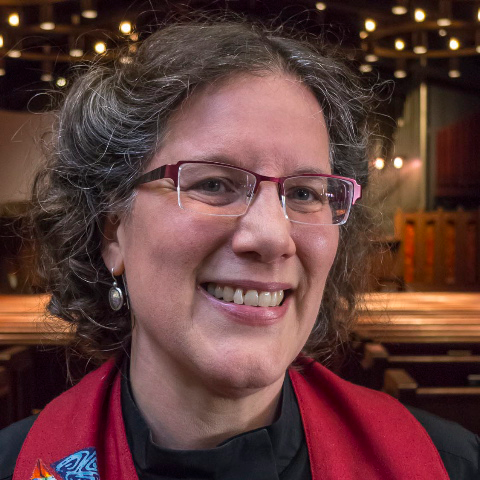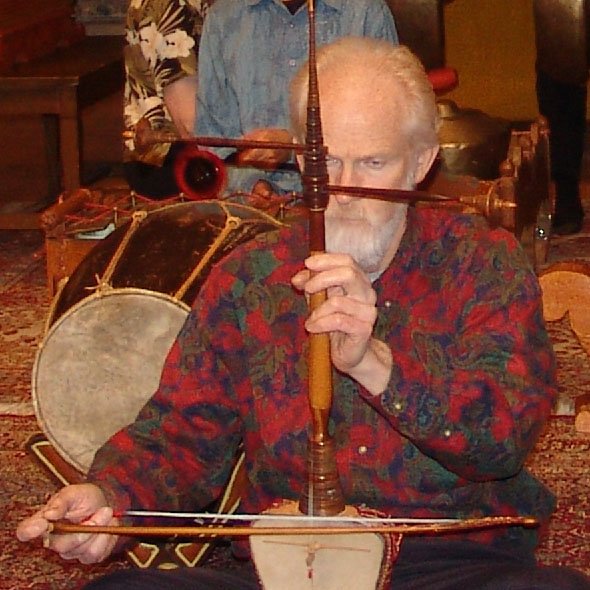What is that peach seed monkey? That thing we need from our father? That thing that confirms and solidifies our relationship?
Whatever it is, Isaac didn’t get it. And felt he never would. No token in the mail. No apology. No note of understanding. Nothing.
It says in the Bible that Isaac never spoke to his father, Abraham, again. After their last encounter, it appears, he gave up. Nowhere in the verses after that fateful day, do they speak. Nowhere are they together. Not in the next chapter when Sarah – Abraham’s wife and Isaac’s mother – dies. Nor, two chapters later when Isaac marries Rebecca. The next time the bible mentions Isaac being with his father is three chapters later when he comes to bury him. No monkey. No tears.
Some fathers and sons have a falling outs. Hurts are endured. Grudges form. Communication becomes strained. It becomes hard to let go of old stuff. Especially in situations where your father tries to sacrifice you to appease his God. It’s hard not to take that personally. Even in the most understanding families.
The bond between a father and his children is one which wavers between tenderness and trauma. It can be warm or wounding. Hopeful or hurtful. But each side spends a lifetime trying to get something, or trying to live without getting it. A promise. Some understanding. Frequently unsure, on both sides, if what we’ve done is enough.
<><><>
The story of Abraham and Isaac is found in the 22nd chapter of Genesis. It is referred to by some scholars as “Abraham’s test.” By others it is referred to as ‘the sacrifice of Isaac.’ Some say Abraham passed the test – proved his faithfulness to God. Others see it otherwise. Especially Isaac.
The story starts out plainly. “One day, God tested Abraham,” it begins.
“Abraham!” The voice called.
“Here am I” he replied.
“Take your son, your only one, whom you love, Isaac. Go to the Mountain of Moriah, build an altar there and make a sacrifice of him there on one of the hills I will show you.
That was the whole message. The request from his God. Abraham’s test.
The bible doesn’t say whether Abraham paused. Whether he scratched his head or whether his mouth dropped open. Whether he asked his wife, Sarah, what she thought (although I would have to consider that to be one of the all-time most stupid questions). It only says he saddled his donkey, took Isaac and two other men, the wood he had chopped for the sacrifice, a firestone and a knife.
Three days into the journey the story tells how Abraham sees the place in the distance. He leaves the men behind and continues on with Isaac. They walk together with the wood, the firestone and the knife.
“Father!” calls Isaac.
“Here am I” Abraham replies.
“Here is the stone, and the wood and the knife. But where is the lamb for the sacrifice?”
“…Where is the lamb for the sacrifice?” Isaac asks. The bible doesn’t describe Abraham as he answers the question. It doesn’t say whether he looks at Isaac as they walk. Or if he stares straight ahead. It doesn’t say whether his answer comes with determination. Or a faltering voice. It doesn’t say. But, it seems to me, this would reveal a lot about how – or whether – Abraham passed the test.
“God will provide the lamb,” Abraham answers.
Abraham and Isaac continue, silently, toward the mountain. The altar is built, wood is stacked, Abraham binds his son and places him on the altar. And just as he raises the knife against his son, God intervenes and spares Isaac. The story says Abraham looked up and noticed a ram caught in a nearby thicket. The ram is sacrificed instead of Isaac. And Abraham names the place “YHVH – yireh” – meaning “God provides.”
<><><>
The story, is often read – and preached –from the perspective that Abraham passed God’s test. That, when called, he demonstrates faithfulness to a God who provides. But it’s important to note that Isaac might not see it this way. Isaac worships a different God. A God who does not abandon him in his need. Who stands up to tyranny on his behalf. Who does not sacrifice him in order to worship something more important.
It has always seemed to me that this is a story of two different people with rivaling Gods. And how people who don’t understand one another’s Gods clash with each other.
But, of course, we must realize that the story of Abraham and Isaac is a story that takes place in a very different time, in a very different place. In a world where fathers actually practiced child sacrifice to find favor with their gods. Something we don’t understand much today. Or do we?
A recent report on fatherhood compiled by the Family Policy Studies Center shows that most fathers, when asked about their roles, cited the role of ‘provider’ as the most compelling and demanding component within their identity as a father … especially in today’s consumer culture. The report acknowledges that other roles such as guardian, mentor, teacher, and caregiver were important too … But that most fathers considered these other roles as additional, rather than fundamental to, the call of fatherhood.
The study also found that breaking out of the provider role, no matter how desirable, was difficult for fathers. Almost all fathers who were not able to provide for their families reported feelings of ‘letting everybody down,’ being ‘of no use to anybody,’ harboring feelings of worthlessness within the family. Even renegotiating the provider role within the family proved hard for most fathers. Many found that the ‘caregiver’ role was so strongly viewed as ‘what a mother does,’ that the role of provider was the only way fathers could show they care.
Ralph Keyes, author of the book, “Sons on Fathers” describes the struggle he had with his own father – in ways that may be familiar to many of us.
“Like so many fathers in the 50’s (and 60’s), mine lived on the outskirts of our family. He worked a lot. Traveled at times. And didn’t have much to say when he was home. [There were occasions of playful, even tender interaction]. But that sort of thing is rare in my memory. I just don’t recall a whole lot about my Dad during my childhood. To me, he felt present but not accounted for. This wasn’t what I had in mind for a father… I’d been hoping for Superman, but had to settle for Clark Kent.”
Having Superman for a father has its appeal. It is common in our culture for children to grow up wanting to esteem their Dad as a crime-fighting, cape-wearing, do-gooding larger than life hero who hits home runs, is handy with a hammer and handy with his fists – who tells stories of high adventure and faraway places. Who they can brag about on the playground. Much like Dads want to brag about their kids in the office.
But such things – toughness and heroics – rarely turn out to be the peach seed monkey. That thing. That token of reassurance. That understanding we struggle to find as we sift through the events of our time together looking for meaning. And connection.
The peach seed monkey is more than a memorable keepsake. It is confirmation of a promise never spoken but always implied. Many children and fathers never experience a moment where the peach seed monkey is passed on. Some never get past being polite. Some never get past old hurts or misunderstandings. Some aren’t given the luxury of time – and when such a luxury comes, they aren’t sure how to use it.
But many fathers spend years trying to carve that monkey. Wanting a way to convey their feelings – and their failings – pass them on to their children in a way they themselves yearned to hear from their fathers. Expressing fear that all they’ve done would never be enough. Wanting the healing that comes with being able to believe it could be.
My father and I have known that dance.
My father started out as a mixture of Superman and Clark Kent to me. Occasionally appearing larger than life, able to save the day. Often, off saving the day somewhere else. I started out as a mixture of Jimmy Olsen and Lex Luther. Sometimes bumbling around trying to do the right thing. Sometimes scheming to destroy the planet. And there were a couple of instances when we did battle. Like Abraham and Isaac, we heard the call of different Gods. And occasionally our Gods clashed.
My father drove big rig trucks for my first seven years. And went to night school on top of that. If my father heard the voice of God telling him to provide for his family, he never explained to me how compelling that voice was for him. But I was too preoccupied listening to the voice of my own God that told me I missed him. I didn’t always understand his God. He didn’t always understand mine.
One night – when my brother Doug and I were six and five – we were with my Dad when he finished delivering a load in his truck. We went back to the trucking company so he could return the truck and do his paper work. During the drive, Doug and I had fallen asleep in the cab. When my Dad finished unloading he saw that we were asleep. Not wanting to wake us up, he carried us to the back of the empty truck, laid us in the freight box on packing blankets, closed the door and went in to do his paper work.
Dad figured we’d just sleep through the time he spent in the office. But we didn’t. We woke up. And we found ourselves in a pitch dark box. Alone. I remember the mixture of terror and dread that ran down my spine when I awoke. I was silent for several minutes taking it in. I called out for my brother who responded in an already awake voice that told me he, too, was aware that we were alone … and he too felt the suffocating sense of dread bearing down on him.
“Where are we?”
“I don’t know. But Dad’s gone.”
“Well, I guess this is it. He’s finally left us for good.”
“Yep.”
“I guess we’re on our own.”
“Yep. What do you think we should do?”
“I don’t know.”
And there was a long pause.
“I guess we’re gonna have to find another place to live.
“Yeah. But how do we do that?”
“We’ll need some money. I have some at home in my bank,” my brother said.
I began to cry because I always spent all my money on candy and soda.
“We’ll probably need to get jobs.”
“Jobs? What kind of jobs?” I asked being very unsure of my employability. (God the provider suddenly didn’t seem so bad).
“There’s got to be some jobs we can do. I can mow lawns,” my brother said.
“But I don’t know how to mow lawns,” I said and began to cry again.
My brother thought for a second and then reassured me that I could rake the leaves – still one of the nicest and most comforting things he’s ever said to me.
From that point we figured we would have to find our way back to the house and steal the lawn mower and the rake before we made our way in the world. And just as we were about to make our break from the back of that truck, up slid the door and there stood my dad.
“You’re awake!” he said surprised. He did not notice the six foot altar my brother and I had erected in our minds. Nor did he notice the fact that we had spent the last 20 minutes bound to it. He did not notice the knife being raised. Or how we had resigned ourselves to our fate. All he saw was the tears in my eyes and he pulled me close to his chest. “What’s wrong?” he asked. But I could not speak. I could not tell him of the turmoil I felt. Or find the words to ask for what I needed.
What is that peach seed monkey? That thing we need from our fathers? Though I yearned for it almost every day as I was growing up, it would be years before my faltering voice learned the words.
Things got worse before they got better. My parents got divorced and feelings of abandonment chipped away my efforts to build esteem. My Dad continued to work hard. He finished school which meant he could stop driving trucks. He took a job as a teacher close to where we lived. He started coming around after school. Just to play catch. He began to carve out a relationship. And more important, he began to carve something out of the seed he had found in our time together.
And one night came a gift. A strange, unique gift, like an unexpected package in the mail. It was bed-time and Dad was reading us a story. We sometimes got fairy tales or other stories you’d expect at bed-time. But for a couple of weekends in a row, Dad read from a different book – one about divorce. It was a little dry and I had trouble understanding the point. Until something came I didn’t expect. There came a moment while reading where Dad’s voice started to falter. It seemed as though he were almost about to cry – which was memorable because I’d never seen him cry before and rarely since. The words he read in that tearful voice are carved into me to this day: “Just because a father gets divorced and isn’t always around doesn’t mean he doesn’t love his children.” And then he paused. And he read it again. Slower this time. It wasn’t even the words he read that told me what I had needed to hear. It was the way he read them. It was the peach seed monkey. At least a piece of it.
In the years that followed my father continued to worship the God who provides. He rarely worked less than two jobs to help pay for my college and get me the things I needed. He once sent me a thousand dollars after I was robbed on vacation so I could get home – and never mentioned it again. But the things that have become even more important to me were the smaller things: the time he has made, the letters and cards he has sent. The way he gets excited when he hears my voice on the phone.
It hasn’t been until the last few years that I have really begun to see some important things about my father. Not the least of which is that he never had a father himself. That he learned to live with a sense of abandonment far greater than anything I knew. That he has experienced more sacrifices then he has asked of his children. And that he has spent much of his life worrying if all he managed to do would ever be enough. If he was a good father. If he passed the test.
Most theologians argue, saying Abraham passed the test – proved his faithfulness to God. But I disagree. I side with Isaac – and the theologians who say Abraham got the test all wrong. That the real test was whether or not Abraham could stand up and say ‘no’ to God. To understand it is impossible to ultimately serve a holy cause by sacrificing what is holy to us.
Did my father pass the test? I love my father. And I am learning to stop grading him – even though it feels like he sometimes asks me to. I have given up believing that by judging his efforts I will somehow gain that sense of worth or well-being I’ve wanted all my life. I have given up giving to others the power to determine whether or not I feel loved or whether or not I am loveable.
Through time, balance, struggle, effort, risk and love, my father let me know – in very imperfect ways – I am holy to him. That is all the peach seed monkey says to us. That’s all it was ever meant to say. My father has never sent me a peach seed monkey – at least not a whole one. But he has sent me all the parts. Few fathers ever manage to give their children all they need without asking them to provide a little glue themselves to hold it all together.
But imperfect gifts glued together are what end wars between rival Gods. Imperfect gifts glued together provide all that is ever needed to stand up to the great tests of our lives – to escape the fears that we feel bound to and see everything we need for love was, somehow, provided.
To the Glory of Life.
Today’s reading, “Reflections on a Peach-Seed Monkey”, is from Sam Keen’s book To a Dancing God (Harper Collins, 1990)
Copyright © 2015, Rev. Greg S. Ward, All Rights Reserved.



















